20 Effective Techniques to Reduce Your Body Fat

If you want to lose body fat and keep it off, don't approach it with the mindset of going on a short-term diet—instead, focus on long-term, sustainable behaviors that will not only encourage weight loss but improve overall health. "Think of your goals on days when you don't feel like eating healthy foods or moving more," says the Mayo Clinic. "Find other ways to stay on track too. For instance, you could post an uplifting note to yourself on the refrigerator or the pantry door." Here are 20 effective techniques to help lose weight, feel better, and look better.
Count Calories
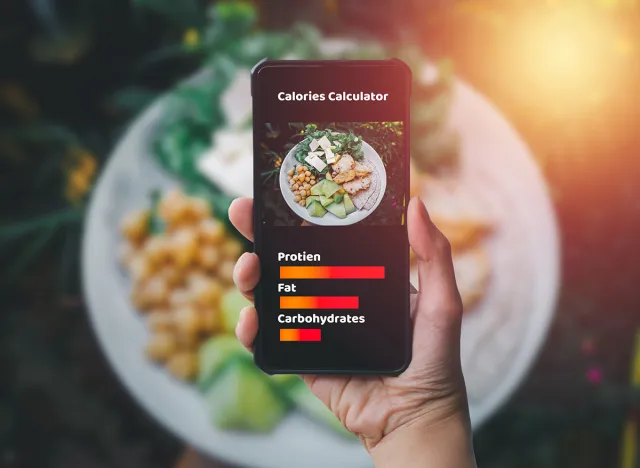
Weight loss comes down to a simple (if not easy) equation of calories in, calories out. Use a calorie calculator to find out what your daily intake should be for weight loss and fat-burning. Remember, counting calories is just one part of weight loss. You could technically lose weight eating nothing but Twinkies but it would be terrible for your health.
Eat Whole Foods
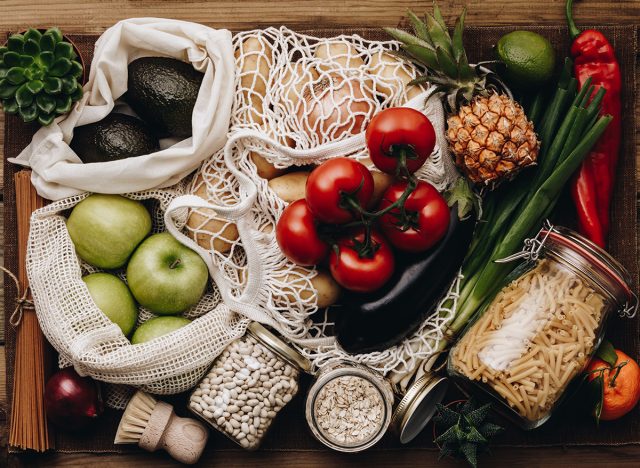
Eat whole foods as much as you can for maximum nutrients and appetite satiety. "Eating foods whole can limit how the body absorbs the fat and sugar that's in them," dietician Victoria Taylor tells the British Heart Foundation. "Research has shown that when almonds are eaten whole, we don't absorb all the fat that's in them because the fat remains bound in the nuts' cells. But grind the nuts up – think ground almonds and nut butters – and the oil is released from the cells, making it more available for the body to absorb."
Get Enough Sleep

Sleep is a non-negotiable for weight loss. Lack of sleep disrupts fat-burning in many different ways, including spiking cortisol and causing excessive hunger. The CDC recommends adults get at least 7 hours of sleep a night.
Avoid Added Sugars
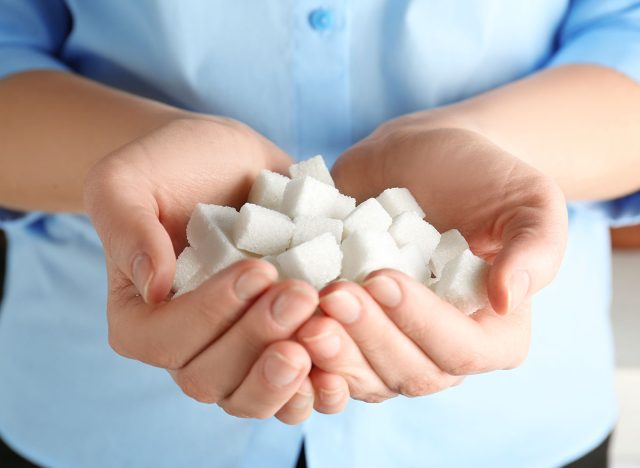
Added sugars offer zero nutritional value and can cause harm to your health. Not only are they empty calories, but added sugars may encourage belly fat accumulation. Save the sugar for cheat meals or special occasions.
Eat More Fiber
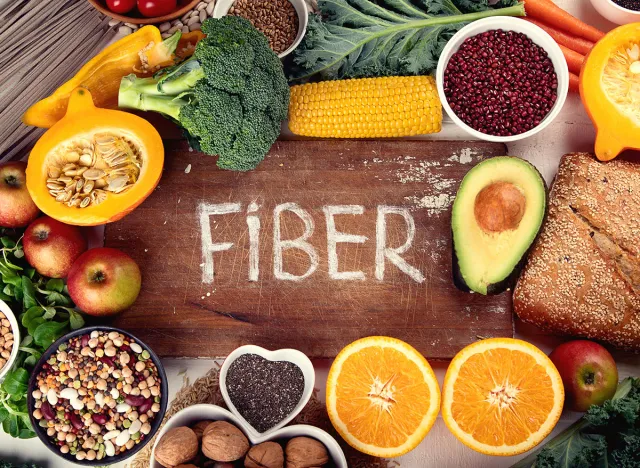
Fiber is linked to successful weight loss. High-fiber foods promote satiety and fullness, which encourages us to eat less. High-fiber diets have also been shown to help prevent heart disease and type 2 diabetes.
Enjoy Healthy Fats
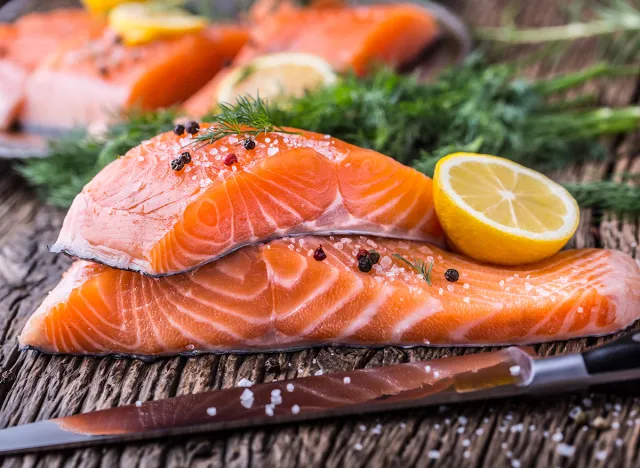
Healthy fats such as those found in olive oil and fatty fish such as salmon should be included in your diet. These fats promote satiety and have many other healthy benefits, such as boosting the metabolism and encouraging fat-burning. Healthy fats are also beneficial for combating "bad" LDL cholesterol.
Walk Everywhere

Walking is simple, accessible, and a highly effective way to burn calories throughout the day. By opting to walk when possible, not only are you burning fat, but you're improving overall health. Regular exercise is also linked to better mental health.
Eat Plenty of Vegetables

Vegetables are packed full of fiber and nutrients, and should be consumed daily. Non-starchy vegetables such as cauliflower, spinach, and kale are ideal for weight loss as they don't spike blood sugar levels. Enjoy them whole rather than juiced for optimum weight loss benefits.
Manage Stress

Stress and weight gain are sadly linked, so do everything you can to manage the stress in your life. How you manage stress is up to you. Some people like to meditate, others find it more therapeutic to hit the gym.
Watch the Alcohol
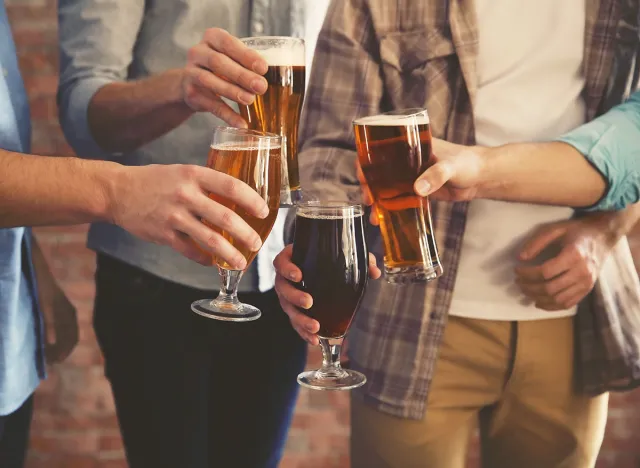
Alcohol is not your friend when you're attempting to lose weight and burn fat. Too much alcohol disrupts sleep, which negatively impacts weight loss. You're also more likely to make unhealthy food choices when drinking.
Try Intermittent Fasting

Intermittent fasting can be a useful tool for weight loss, especially if you find the idea of constant calorie-counting or portion control exhausting. By limiting the time in which you allow yourself to eat, you will naturally have fewer opportunities to mindlessly snack. Make sure to eat as many nutrients as possible with your meals.
See a Therapist

Talking to a mental health professional could be very helpful to unpick what is causing weight gain in the first place. Weight gain could be a symptom of another issue, in which case it won't hurt to seek professional help and guidance.
See Your Doctor

Keeping on top of your physical health is important, too. Get a physical once a year and make sure you aren't depleted in any essential nutrients. Sometimes weight gain could happen for reasons that are not related to lifestyle choices.
Make It Fun

Find hobbies that are active but also really fun and rewarding. Playing tennis for an hour may be a lot more sustainable for someone than running for the same amount of time. Exercise does not have to be a miserable, grueling experience. Find something you love and stick to it.
A Little Help From Friends

Tell the people around you you're working hard to lose weight, so they can support you on your journey. You're less likely to go off track if others are cheering you on and offering help and encouragement.
Don't Eat Junk Food
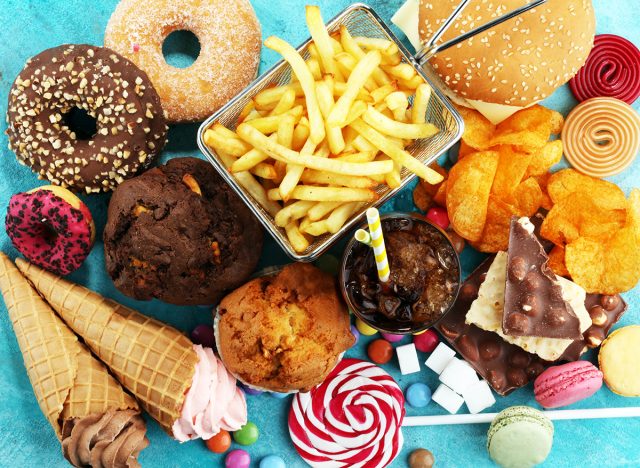
This may be difficult if you're used to eating a lot of ultra-processed foods, but cutting out fast food is good for your waistline and your health. These foods have been designed to be overconsumed, and are usually packed full of unhealthy additives, trans fats, and sodium. It may take a while, but train your palate to enjoy normal, whole foods.
Lift Weights

Don't be afraid of lifting heavy weights—unless you are deliberately trying to bulk up, it's unlikely to happen. Building muscle is beneficial in many ways, not least that it encourages fat burning even when you're at rest. Strong muscles encourage strong bones, and there is a real mental health benefit to strength training.
Get a Personal Trainer

Using the services of a personal trainer can really help kickstart your weight loss journey. A good trainer will help you figure out a plan to get to where you want fitness-wise, while burning fat and improving your appearance. Many personal trainers are also qualified to provide nutritional advice.
Portion Sizes
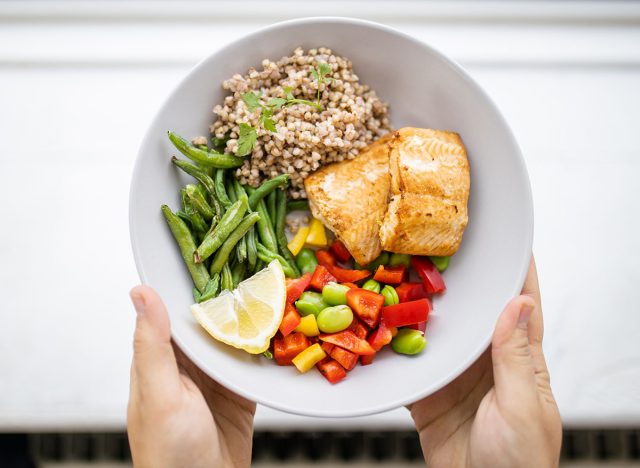
Learn what a normal portion size looks like—it will really help with weight loss efforts, considering you need to burn off more than you eat. By being mindful of portion sizes, you will instinctively know how much food to serve yourself, and listen to your hunger and fullness cues better.
Cook Your Own Food

Food prepping is an incredibly useful tool for weight loss. By preparing your own meals, you not only save money, but have full control of every single ingredient that goes into your dishes, down to the last calorie. You will also take a huge amount of decision fatigue off your shoulders, because the food is already prepped and ready to be eaten. And if you enjoyed this article, take advantage of these 15 Quick Ways to Lose Body Fat Percentage in a Week.




